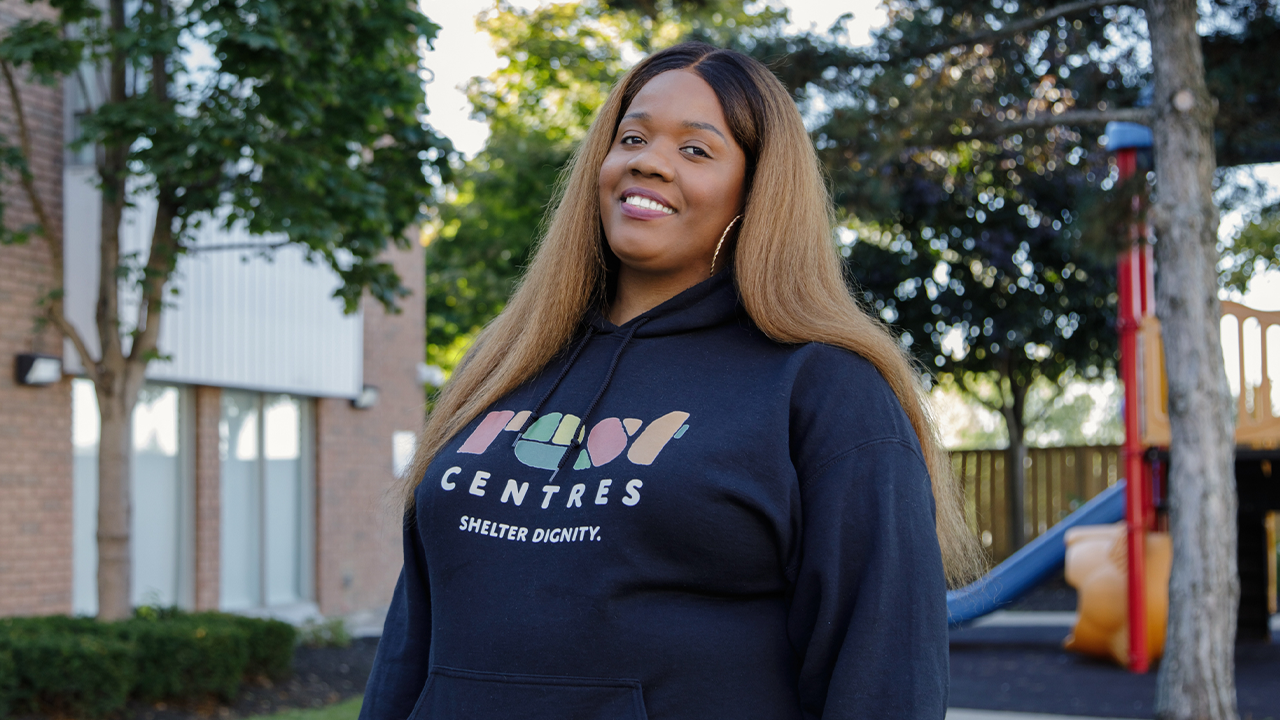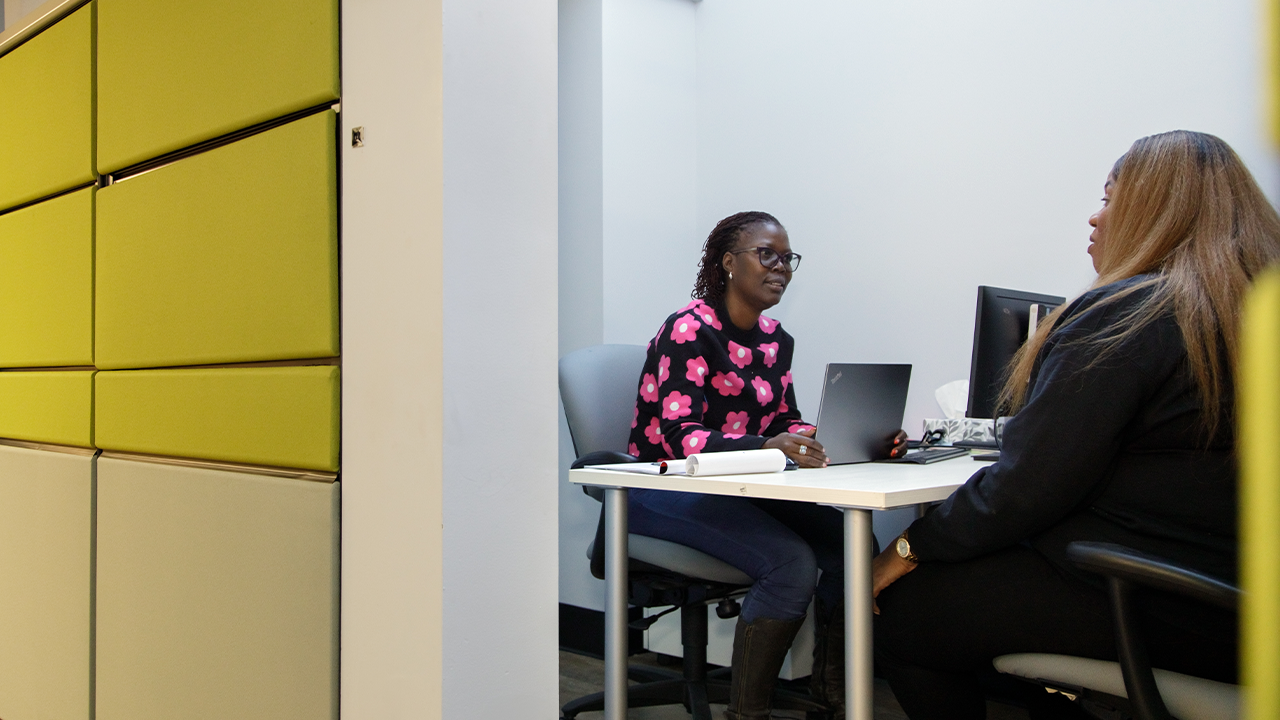

Photos by Daria Perevezentsev
REST Centres promotes independent and stable living for young people
In 2015, Dagma Koyi founded REST Centres, a black-led, BIPOC-serving charitable organization in the Peel Region that provides traditional housing and support services to at-risk and homeless youth, including those who are leaving the foster care system.
The core focus of REST — which stands for Restoration and Empowerment for Social Transition — is on shelter diversion and eviction prevention through interventions that promote independent and stable living for youth.
“I founded REST primarily because of my own lived experiences,” said Koyi. “I came to Canada at a very young age and experienced much of the same issues that today’s BIPOC and Black youth experience with the system.” This, she said, included systemic racism.
Among the programs it offers in in the Peel Region are Bridge of Hope, which provides an alternative to shelters by matching youth tenants with host families in the community. After a youth is placed, REST conducts regular follow-ups and provides ongoing supports to them and their host family. Clients that utilize the Bridge of Hope Program are provided with rental subsidies and related interventions for promoting their independent and stable living.
It also runs the FIRM Program (Family Intervention and Reunification Management), a culturally sensitive initiative aimed at preventing youth homelessness within the Black African and Caribbean communities by strengthening family relationships and resolving conflicts.
FIRM provides participants with preventive counseling, reunification service and conflict resolution workshops, all tailored to the unique needs of the communities to address underlying family issues, promote family reunification and create stable home environments that support the well-being of youth.
According to REST Centres’ 2023 impact report, in the Peel Region residents face increasing housing costs that can be particularly challenging given that the median annual income is $36,000.
“This issue is critical for youth homelessness as 7.8 per cent of the overall population and 10 per cent of youth under 18 live with low income. Also, vacancy rates are at a record low of 44 per cent, and monthly rent has risen by approximately 26.5 per cent,” the report said.

Koyi said it is those numbers that reinforce the rising demand and effectiveness of REST’s supports and services.
“More homeless and at-risk BIPOC youth sought out REST Centres’ services than ever before, and when you look at our core flagship program, the Bridge of Hope, you can see the change, because in 2022, we had 94 active clients and that rose to 136 in 2023,” Koyi said.
She said that is due to the direct outcome of its outreach programs and its communication with other partners in the greater community, which has heightened the visibility of REST. The partnerships and collaborations that centre has made — including the funding support from United Way Greater Toronto through its community grant program — are impressive.
REST has acquired a 2,500-square-foot space with Peel Living in in Mississauga, has expanded its service coverage, collaborated with the Catholic Community Services of York on newcomer integration, hosted shelter diversion program workshops focusing on avoiding emergency shelters and evictions, and partnered with local food banks, the Malton Youth Hub and many others local organizations.
In 2023, Koyi said, REST reached an important milestone with the launch of its culturally sensitive landlord and tenants training manual as part of its Bridge of Hope program. The manual was developed so that youth understand tenancy issues and learn to cultivate essential soft skills that contribute to the prevention of eviction and help ensure stable living conditions.
Koyi said the multi-year funding REST receives from United Way is vital to ensuring stability and a continuity in services that allows the centre to build trust with its clients.
“The commitment from United Way has been very impactful in helping us do what we need to do — helping our youth,” she said.
Among the other programs that REST offers are:
- The Bare Necessities program that helps youth to access gift cards and household starter packs.
- The HERO (Healing Emotionally Recovering Opportunities) Program that provides culturally sensitive assistance including individual counselling, group counselling and talk therapy about the importance physical health, mental health and emotional health.
- The RISE (Recreation Inspiring Social Engagements) initiative that emphasizes mentorship, coaching, prosocial support (mental and emotional) and physical well-being.